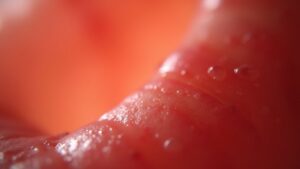You may not realize how much your daily habits—like sipping hot coffee or eating spicy foods—can slow down your esophagus’s healing process. In case you’ve been managing irritation, burning, or trouble swallowing, your body needs time to repair the damage, but how long that takes depends on what’s causing it and how well you care for yourself. Whether it’s mild inflammation or something more serious, comprehending the factors at play helps you take control of your recovery.
Causes and Types of Esophagitis
In case your esophagus feels raw or irritated, you could be handling esophagitis—a fancy term for inflammation that can make swallowing painful or cause relentless heartburn.
The most common culprit is GERD, where stomach acid splashes back up, irritating the lining. But it’s not the only cause.
GERD often triggers esophagitis by allowing stomach acid to irritate the esophageal lining. However, other factors can also play a role.
Eosinophilic esophagitis happens when your immune system overreacts to allergens, flooding the area with white blood cells.
Infections, like thrush or herpes, can also trigger it, especially in the event that your immune system’s weak. Certain meds or radiation therapy may inflame it too.
Understanding the type helps tailor treatment, so don’t ignore persistent discomfort.
Common Symptoms of Esophageal Damage
You may feel a burning sensation in your chest after meals, especially when you have acid reflux.
Swallowing food can become difficult or painful when your esophagus is inflamed or damaged.
Sometimes, stomach acid comes back up into your mouth, leaving a sour taste and making one feel uncomfortable.
Burning Sensation in Chest
Many people experience a burning sensation in their chest at some point, and it’s often a sign that stomach acid is irritating the esophagus. This discomfort, called heartburn, happens whenever acid reflux splashes up, leaving a fiery feeling behind your breastbone.
It could flare after eating spicy foods or lying down too soon. While occasional heartburn is common, frequent episodes could mean GERD, a condition where acid repeatedly damages your esophagus.
Antacids or acid blockers can help, but in case the burning doesn’t ease, see a doctor. Ignoring it risks long-term harm, so don’t brush it off as just “spicy food regret.”
Difficulty Swallowing Food
At the time food feels like it’s sticking in your throat or chest, it’s more than just annoying—it could signal damage to your esophagus.
Difficulty swallowing, or dysphagia, often happens at the onset your esophagus is inflamed or injured, making meals uncomfortable. You could feel pain or notice food moving slower than usual.
Should this persists, it can lead to weight loss or even nutrient deficiencies. The healing process depends on the cause—like GERD or esophagitis—but avoiding irritants and following treatment helps. Tests like an endoscopy can pinpoint the issue.
Don’t ignore it; prompt care prevents complications like strictures or infections.
Frequent Acid Regurgitation
Frequent acid regurgitation isn’t just occasional heartburn—it’s a persistent issue where stomach acid repeatedly flows back into the esophagus, causing irritation and discomfort.
You could feel a sour taste, throat burn, or even food coming back up. Over time, frequent acid reflux can damage your esophagus, raising the risk of conditions like esophageal cancer.
To manage it, try smaller meals, avoid trigger foods, and elevate your head while sleeping. Treatment options include antacids, proton pump inhibitors, or lifestyle changes.
Should symptoms persist, see a doctor to prevent lasting harm. Your esophagus can heal, but it needs the right care.
Factors Affecting Healing Time
Your esophagus healing time depends on how severe the damage is, whether you stick to your treatment plan, and any other health issues you could have.
Should your esophagitis be mild, you’ll likely recover faster than in cases where it’s severe or involves complications.
Following your doctor’s advice and managing conditions like diabetes or obesity can make a big difference in how quickly you heal.
Severity of Damage
Since the esophagus doesn’t heal at the same rate for everyone, how long it takes depends mostly on how badly it’s damaged. Mild irritation from occasional acid reflux could heal in weeks, but severe damage—like ulcers or strictures—can take months.
The severity of your condition plays a big role in healing time. Chronic inflammation or infections, like eosinophilic esophagitis, slow recovery because they keep irritating the tissue. Complications, such as scarring, make it harder for your body to repair itself.
Your overall health matters too—if you’re older or have a weakened immune system, healing often takes longer.
Treatment Adherence
- *Feel the relief* as you wake up without heartburn because you took your meds on time.
- *Regain control* by ditching late-night snacks that trigger reflux.
- *Stay motivated* realizing each healthy choice speeds up healing.
- *Celebrate progress* as symptoms fade with consistent effort.
Your actions directly impact recovery—stay committed.
Underlying Health Conditions
While sticking to your treatment plan helps the esophagus heal, essential health conditions can slow things down or complicate recovery.
Should you have GERD, obesity, or chronic inflammation like eosinophilic esophagitis, your healing time could stretch longer. Infections or a weakened immune system can also delay recovery, requiring special treatments.
Smoking or drinking alcohol worsens irritation, making it harder for your esophagus to repair itself. Even strictures or ulcers from long-term GERD may need extra procedures.
Managing these foundational conditions—like losing weight or avoiding triggers—can speed up healing. Your body’s unique needs play a big role in how quickly you bounce back.
Mild vs. Severe Cases of Esophagitis
- *The burning sensation won’t let you enjoy meals.*
- *Swallowing may feel like pushing through sandpaper.*
- *Nights are interrupted by relentless heartburn.*
- *You worry it won’t ever get better.*
Stick to your plan—healing happens, even though it’s slower for severe cases.
Medical Treatments for Esophagus Healing
Whenever your esophagus hurts every time you swallow, relief can’t come fast enough—and the right medical treatments can speed up healing.
Proton pump inhibitors (PPIs) are often prescribed for 4–8 weeks to reduce stomach acid and help your esophagus heal. In case PPIs don’t work well enough, H2 blockers could ease symptoms for a few hours, though they’re less effective for severe inflammation.
PPIs reduce stomach acid for 4–8 weeks; if needed, H2 blockers offer short-term relief with less intensity.
For eosinophilic esophagitis, swallowed steroids or avoiding allergens can calm irritation. In rare cases, a doctor might stretch narrowed areas with a dilation procedure.
While medications help, combining them with lifestyle changes boosts recovery—but we’ll cover those next.
Lifestyle Changes to Promote Recovery
Should your esophagus need time to heal, small but meaningful lifestyle adjustments can make a big difference. Your daily habits play a huge role in the healing of the esophagus, especially when you’re confronting GERD esophagitis.
Simple changes can ease discomfort and speed up recovery.
- Eat smarter: Swap spicy, acidic, or fatty foods for gentler options like oatmeal or bananas.
- Sleep elevated: Prop up your head 6–8 inches to keep stomach acid where it belongs.
- Quit smoking: It irritates your esophagus and slows healing.
- Stay hydrated: Water helps soothe and protect damaged tissues.
These lifestyle changes add up, giving your body the support it needs.
Signs of Improvement During Healing
You’ll know your esophagus is healing as symptoms like heartburn or trouble swallowing start easing up. Over weeks, you’ll notice fewer flare-ups, less throat soreness, and an easier time eating foods that once caused discomfort. Your body’s repair process takes time, but these small wins show progress.
| Sign | What It Means | How Soon? |
|---|---|---|
| Less frequent heartburn | Acid damage is reducing | 2–4 weeks |
| Easier swallowing | Inflammation is improving | 3–6 weeks |
| No nighttime symptoms | Healing is steady | 4–8 weeks |
Stick with your treatment—your esophagus is on its way to feeling better.
Potential Complications if Left Untreated
Ignoring ongoing esophagus issues doesn’t just mean putting up with discomfort—it can lead to serious problems should it remain unchecked.
Should you leave untreated GERD or inflammation unchecked, complications like esophageal strictures can develop, making swallowing painful and difficult.
Ignoring GERD can lead to painful esophageal strictures, turning simple meals into a struggle. Act before swallowing becomes unbearable.
Over time, chronic acid damage might even increase your risk of more severe conditions.
- Painful ulcers: Open sores in your esophagus that bleed or cause intense discomfort.
- Narrowing esophagus: Scar tissue tightens your throat, making eating a struggle.
- Barrett’s esophagus: Cell raise cancer raise cancer risks.
- Nutritional gaps: Trouble swallowing leads to weight loss or deficiencies.
Don’t wait—your health deserves attention.
Monitoring Progress and Follow-Up Care
While healing can take time—usually around 6 to 8 weeks with treatment—keeping up with follow-up care is key to making certain your esophagus recovers properly.
Your doctor will likely schedule check-ins to monitor progress, adjusting medications or lifestyle tips when necessary. Should symptoms linger or worsen, they might suggest an endoscopy to get a closer look.
Stick to your treatment plan, track how you feel, and report any changes. Small steps like avoiding trigger foods or elevating your head while sleeping can speed up the healing process.
Stay patient—consistent follow-up care guarantees you’re on the right track.
Conclusion
Healing your esophagus takes patience—it’s not a sprint but a marathon. Mild cases may bounce back in a few weeks, while severe damage could take months. Stick to your treatment, tweak your habits, and listen to your body. Should you rush it, you risk setbacks. Keep up with your doctor, celebrate small wins, and keep in mind: slow and steady wins the race. You’ve got this.





